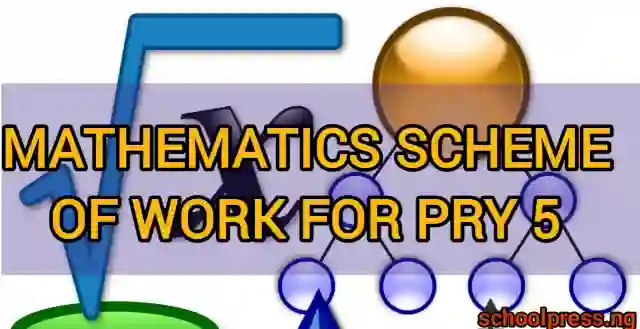The verbal reasoning is a vital aspect since it needs one to think critically and logically to solve the arising problem. It is a condition that kids must pursue to enable them to reason critically any time they encounter an issue that needs a solution.
This article aims at discussing the Verbal Reasoning Scheme of Work for Primary 5 . There after we will discuss the first term, second term, and third term work syllabus for primary 5 students.
The first term of verbal reasoning covers 13 weeks as discussed below: during the first week, the students should revise last class activities. In the second week, students should cover alphabetical arrangement where students are taught how to arrange words alphabetically.
The third week students should cover the meaning of words according to the sentence they appear from. In the fourth and fifth week, word formation words pop up; students should use a given set of letters to create new words. In the sixth week, students are introduced to gender where students are taught how to identify the gender of nouns.
The seventh week is the mid-term break. Anagram involves rearranging the letters of a word to form another word from the eighth-week.
Coded words involve decoding a message given a certain style from the ninth week . Final examination and revision are done at this stage in the tenth and eleventh week. The twelfth week and thirteenth week are examinations.
The second term verbal reasoning scheme of work for primary 5 comprises 13 weeks. During the first week, students will revise what they learned in the previous class. In the second week, students will learn about root words, which involves identifying the root word of a given word.
In the third week, students will learn how to form sentences using a given set of words. In the fourth and fifth week, students will learn about antonyms, which involves identifying words with opposite meanings.
In the sixth and seventh week, students will look into synonyms, finding words with the same meanings. The break will be on the eighth week: revision will occur on the ninth week before repetition in the tenth and eleventh week. Examination will be conducted in twelfth and thirteenth week.
The third term verbal reasoning scheme of work for primary 5 comprises 13 weeks. On the first week, it involves revisiting what the students were taught in the previous class. On the second week, it will involve idiomatic expression and interpretation.
Interpretation entails understanding idiomatic expression. On the third week, it will be identifying common errors in a sentence. On the fourth week, it will be analogies. This is identifying relationships on words that are related. On the fifth week, it will be pattern making. This is identifying a pattern, within a series of words.
In the sixth week, students are taught logical inferences that are identifying the various logical connections between words. Mid-term break is on seventh week, eight week is about group names, which identifying the correct name for a group of things. Sentence meaning is on ninth week, tenth and eleventh week is a revision of what one has learned. Twelfth week is examinations.
Table of Contents
First Term Verbal Reasoning Scheme of Work for Primary 5
| WEEK | |
| 1 | Revision |
| 2 | Alphabetical arrangement |
| 3 | Figure it out |
| 4 | Wordformation |
| 5 | Wordformation |
| 6 | Gender |
| 7 | Mid-termBreak |
| 8 | Anagram |
| 9 | Coded |
| 10 | Revision |
| 11 | Revision |
| 12/13 | Examination |
Check All Primary Schemes of Work Below
Second Term Verbal Reasoning Scheme of Work for Primary 5
| WEEK | |
| 1 | Revision |
| 2 | Rootwords |
| 3 | Sentences formation |
| 4 | Antonyms |
| 5 | Antonyms |
| 6 | Synonyms |
| 7 | Mid-term Break |
| 8 | Synonyms |
| 9 | Revision |
| 10 | Revision |
| 11 | Revision |
| 12/13 | Examination |
Check All Jss Scheme Of Work Bellow
Third Term Verbal Reasoning Scheme of Work for Primary 5
| WEEK | THIRDTERM |
| 1 | Revision |
| 2 | Idiomatic expressions and interpretation |
| 3 | Spotting common errors |
| 4 | Analogy |
| 5 | Pattern making |
| 6 | Logical inferences |
| 7 | Mid-term Break |
| 8 | Group name |
| 9 | Sentence: Meaning |
| 10 | Revision |
| 11 | Revision |
| 12/13 | Examination |
Check All SSS Scheme Of Work Bellow
Conclusion
The Verbal Reasoning Scheme of Work for Primary 5 is a holistic program aimed at improving cognitive abilities, thinking capacity, critical analysis, and problem-solving of the students among others. It is ideal in helping students form a strong basis around the language.
The first term, the second term and the third term verbal reasoning syllabus for primary 5 students span 13 weeks each.
Here is the list of topics covered by the scheme of work: working alphabetical arrangement, word meaning, making words, gender, anagram, coded words, root words, making sentence, antonyms, synonyms, idiomatic expressions, spotting common errors, logical analogies, pattern making, logical inferences, group names, and sentence meaning. The syllabus will aid students to work on their verbal reasoning skill in other higher classes.









